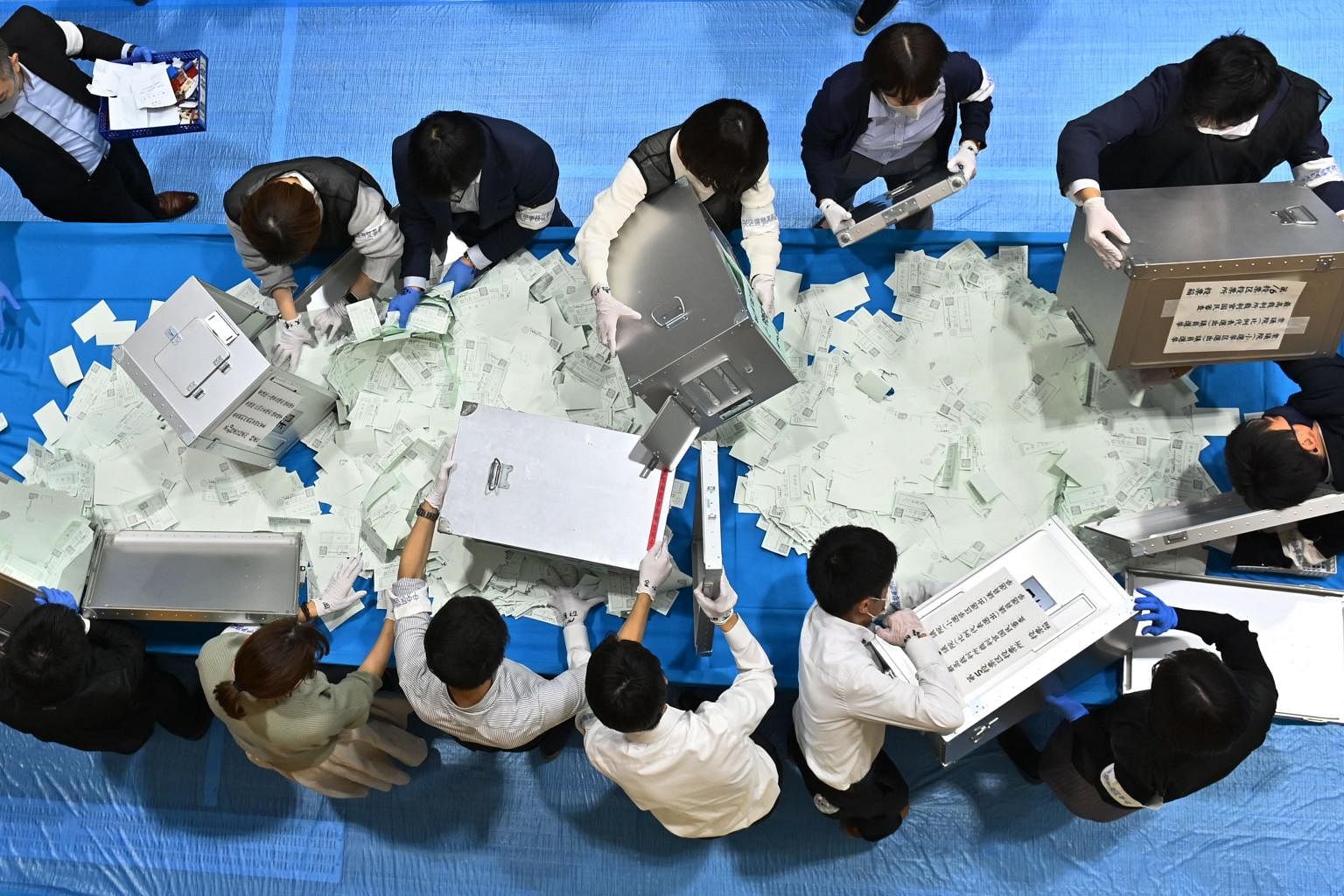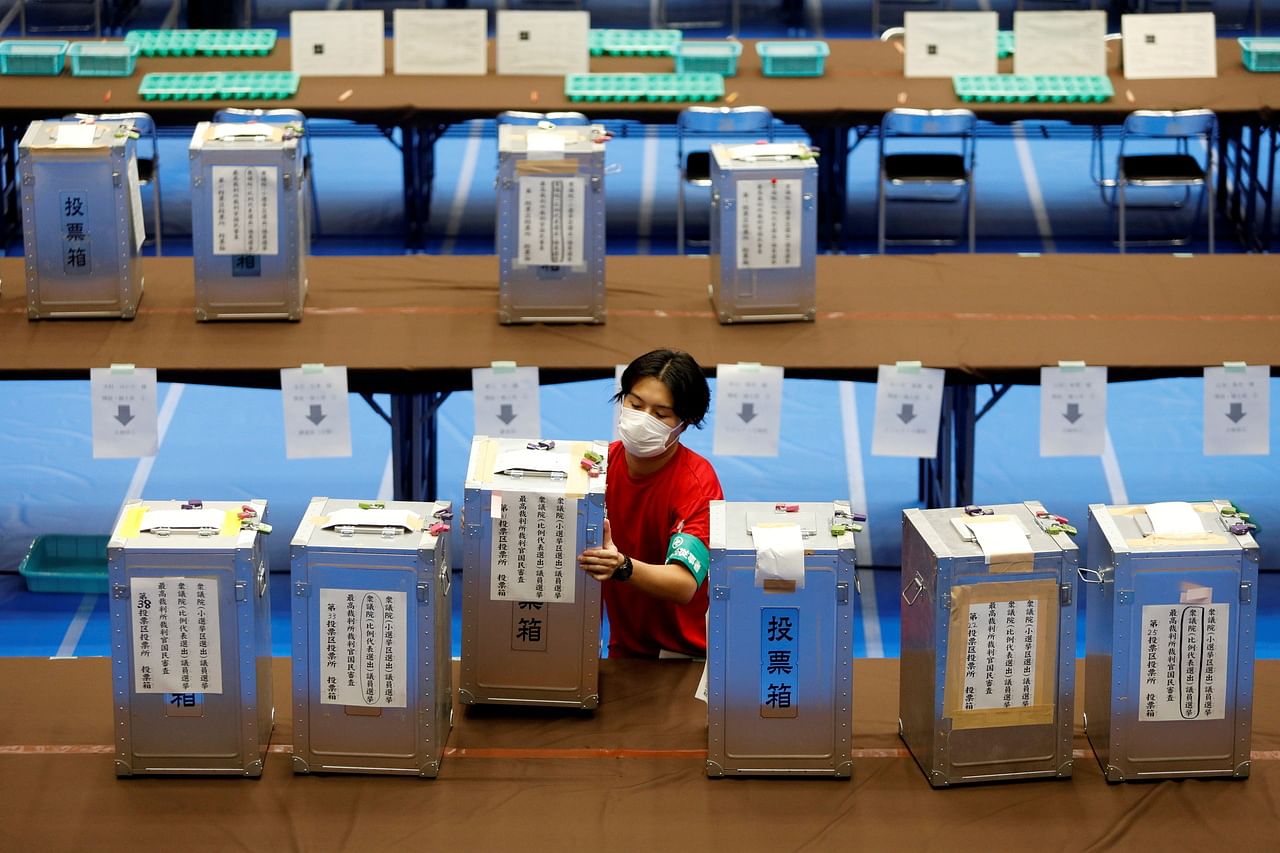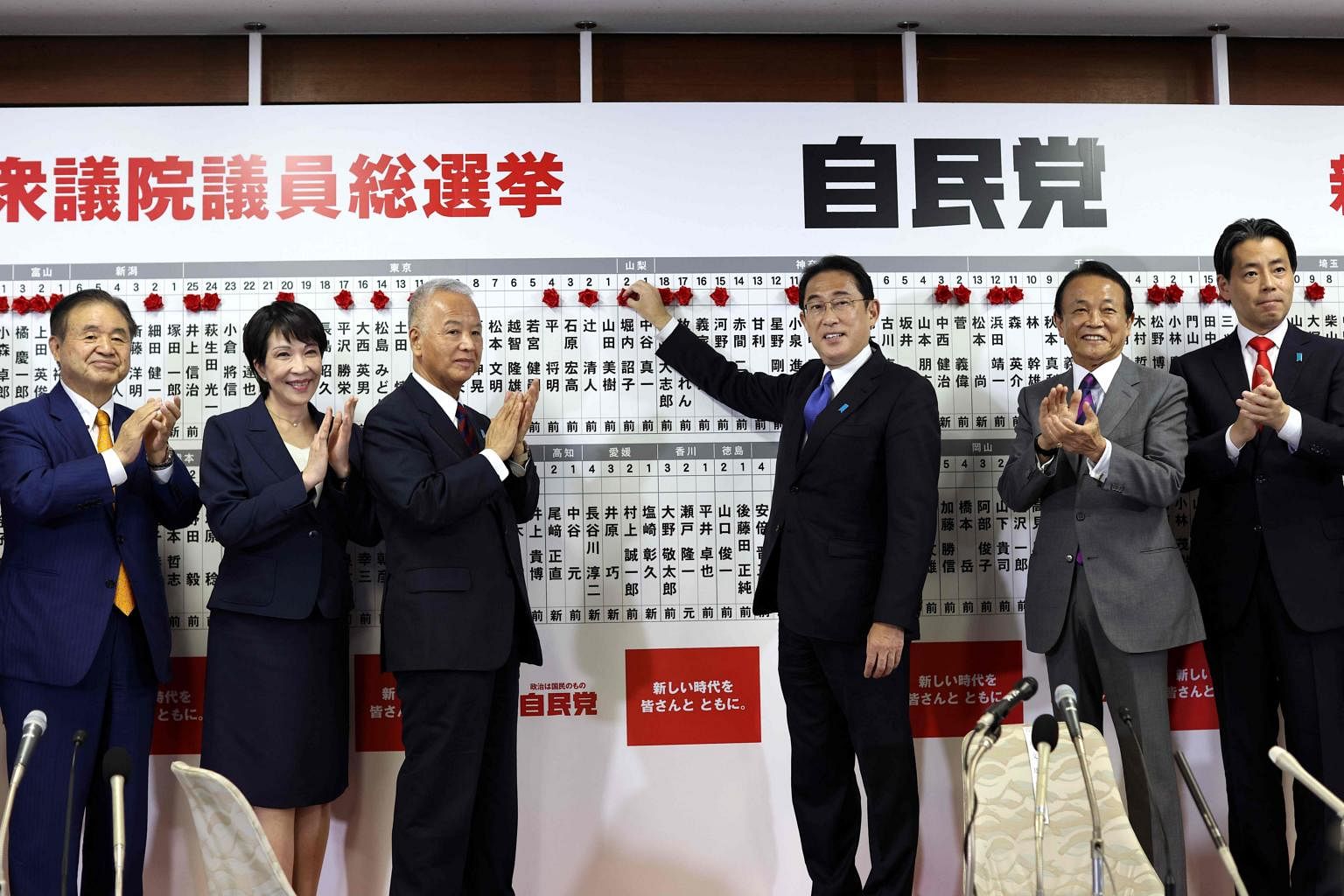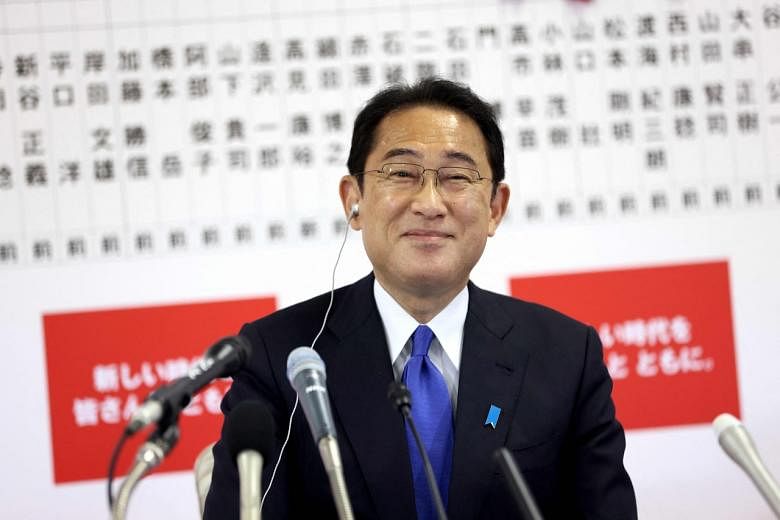TOKYO - Japan's ruling Liberal Democratic Party (LDP) delivered a better-than-expected showing in Sunday's (Oct 31) general election, leading Prime Minister Fumio Kishida to declare that he had won the trust of voters.
The final results, which were known on Monday, showed the LDP had taken 261 seats, retaining the majority on its own in the 465-seat Lower House.
Although down from its pre-election tally of 276, the eventual outcome was better than expected. Several media outlets, including public broadcaster NHK, forecast that it would win only up to 253 seats.
"It was a very tough election," Mr Kishida told reporters on Monday. "But voters have chosen stability in voting for the ruling government to chart the country's future. Having won their trust, I will proceed with a sense of urgency."
He added, however, that the LDP "must take it very seriously that many harsh voices have been heard".
Among his priorities, he said, was to decide on large-scale economic measures by this month with a supplementary budget to be passed within the year.
In the light of a more volatile security environment, Mr Kishida said he would revise the National Security Strategy for the first time since 2013. All options, including pre-emptive strike capabilities, would be discussed thoroughly, he said.
The LDP's coalition partner Komeito won 32 seats, up from 29, giving the ruling bloc a total of 293 seats. This is down slightly from the 305 they held previously, but the resounding result erased market jitters over the prospect of political instability in Japan.
The Nikkei 225 index closed 2.61 per cent higher on the back of the LDP's strong showing, while the broader Topix index closed 2.18 per cent higher.
Mr Kishida's next major electoral test will come in July next year, with the Upper House election.
Media surveys last week showed a series of dead-heat races, but many of these contests ended in the LDP's favour with the margin of victory less than 10,000 votes in as many as 31 single-seat districts.
The LDP's strong showing, however, belied a series of upsets that ousted veteran party heavyweights and former Cabinet members.
The main opposition Constitutional Democratic Party (CDP) managed to pull off shock wins including in the Kanagawa 13th district where its freshman candidate Hideshi Futori, 44, a former think-tank researcher, ousted LDP secretary-general Akira Amari, 72.
While Mr Amari, a 12-term MP, will remain a lawmaker via the proportional representation list, he has conveyed his intention to resign as secretary-general to Mr Kishida over the unprecedented defeat.
Local media reported on Monday that Mr Kishida will appoint Foreign Minister Toshimitsu Motegi as Mr Amari's successor, though it remains unclear who will take over Mr Motegi as Japan's top envoy.
Mr Kishida said on Monday that he would make a decision on the appointment as soon as possible.
Others who lost their seat included former digital minister Takuya Hirai, 63, former Olympics minister Yoshitaka Sakurada, 71, and former LDP secretary-general Nobuteru Ishihara, 64.
The CDP lost seats in Sunday's vote, with its haul of 96 down from 110 previously.
The big winner was the Nippon Ishin no Kai (Japan Innovation Party), a centre-right party that began as a regional outfit based in Osaka but now has national ambitions.
The party leapfrogged the Komeito to become the third-largest in the Lower House with 41 seats - up from 11 before the election.
Mr Kishida said the LDP would work with Nippon Ishin no Kai on a policy-by-policy basis, noting that both were ideologically similar conservative forces.


Voter turnout was at 55.93 per cent, according to a Kyodo News projection. This was higher than the 53.68 per cent in the 2017 election, but still the third-lowest in history.
An Asahi News survey showed that 41 per cent of voters were LDP supporters and 17 per cent were CDP ones. But only 15 per cent of independent voters turned up to vote, with their ballots evenly split between the CDP (21 per cent), the LDP (19 per cent) and the Nippon Ishin no Kai (18 per cent).
A special Diet session will convene on Nov 10 for a procedural vote to re-elect Mr Kishida as prime minister. He will likely keep the Cabinet, which was inaugurated only on Oct 4, largely unchanged.

Only one incumbent Cabinet minister - Mr Kenji Wakamiya, the Minister-in-charge of the Osaka 2025 World Expo - lost his seat, but he remains a lawmaker via the proportional representation list.
Mr Kishida will leave for Glasgow on Tuesday morning to take part in the COP26 climate summit in his first international meeting as Japan's leader.
He has said that the country would "fulfil its global responsibility" and take the lead to help emerging Asian countries achieve net-zero carbon emissions.


